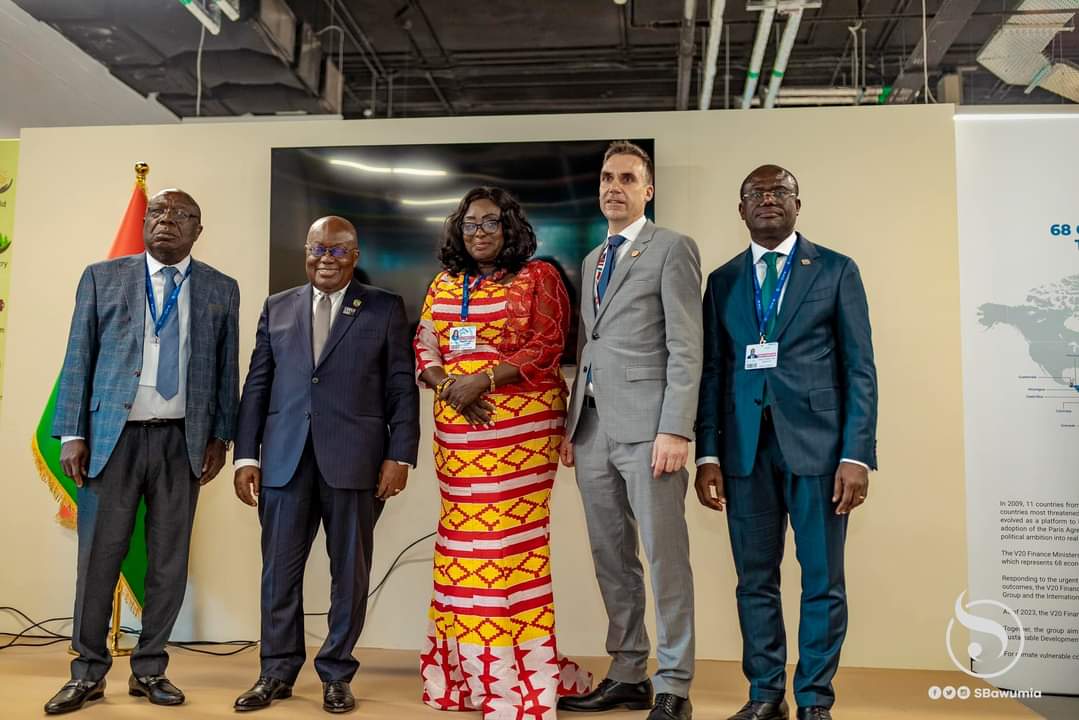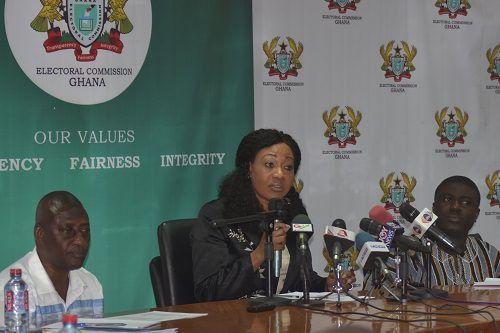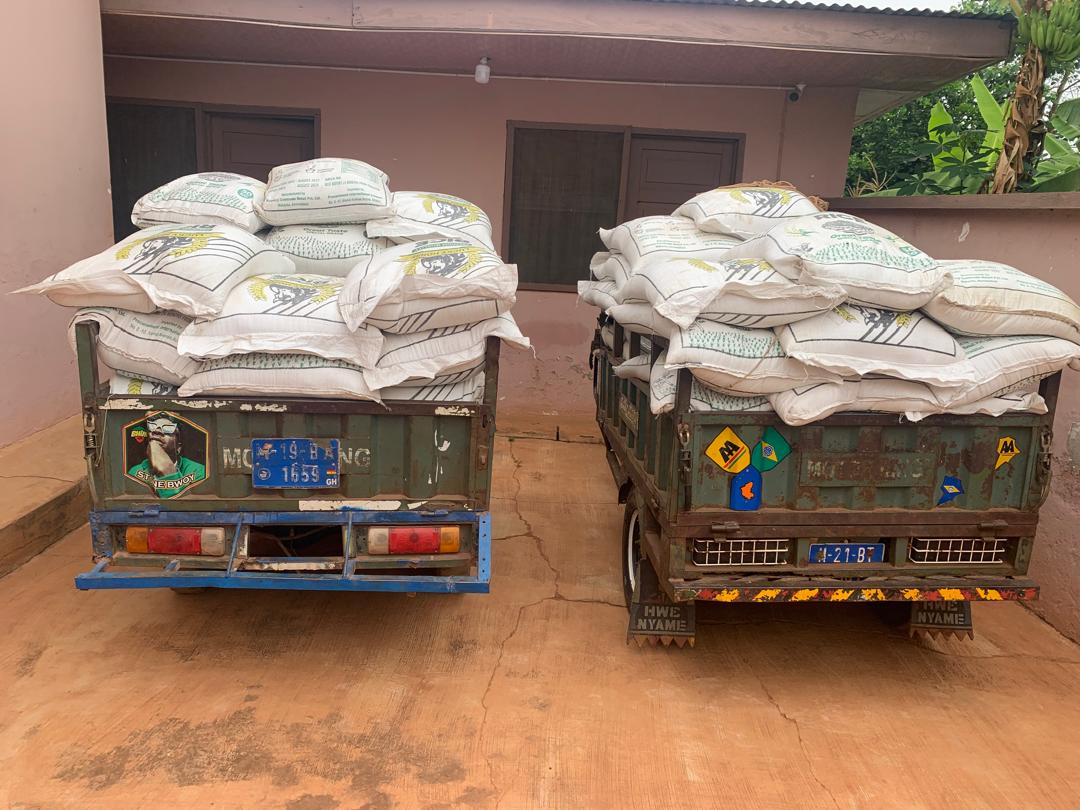
Ghana’s agricultural sector is facing mounting challenges, particularly from climate change, food security issues, and the urgent need for market-driven solutions.
Speaking at the 14th Annual Pre-Harvest Agribusiness Conference and Exhibition, Mr Reuben Binpori, the Inclusive Business Models Expert for the European Union Ghana Agricultural Programme (EUGAP), emphasized the critical need for a renewed commitment to sustainable and resilient agricultural practices.
According to him, Agriculture remains the backbone of Ghana’s economy, particularly in rural areas, where millions of people depend on farming as their primary livelihood.
However, the sector faces numerous obstacles, including the impacts of climate change, volatile commodity prices, and limited access to technology and capital. With a growing population placing more pressure on agricultural systems, these challenges are becoming even more urgent.
He however, called for a shift toward more sustainable and resilient agricultural practices to ensure food security and economic growth. He highlighted that in the face of increasing global agricultural challenges—such as climate change and the rising need for food security—the adoption of climate-smart agricultural practices is no longer optional but necessary.
The urgency of sustainable agricultural practices
“Sustainability in agriculture is the foundation for ensuring both food security and long-term economic growth,” He stated. “The agricultural sector must evolve to meet these challenges, and that evolution begins with embracing innovative, climate-smart solutions such as organic farming, precision agriculture, and agroecology.” These practices focus on optimizing resources—such as water, land, and fertilizers—while minimizing environmental damage and ensuring the long-term viability of agricultural production.
He emphasized the importance of adopting cutting-edge technologies, such as precision farming, which uses data analytics and GPS technology to improve resource efficiency. This innovation not only boosts crop yields but also reduces environmental degradation. Additionally, organic farming and agroecological methods, which emphasize soil health and biodiversity, are critical for ensuring that agriculture remains sustainable in the face of climate change.
EUGAP’s impact on Ghana’s agricultural sector
The European Union Ghana Agricultural Programme (EUGAP) has been at the forefront of promoting sustainable agricultural practices. Through initiatives such as the Market-Oriented Agricultural Programme in North-West Ghana (MOAP NW) and the Resilience Against Climate Change (REACH) project, over 70,000 farmers, agro-input dealers, and agro-processors have received training to build their capacity for adopting these sustainable practices.
By providing farmers with the tools, knowledge, and technologies needed to be more competitive and resilient, EUGAP helps strengthen market systems and connect farmers with the resources they need to grow sustainably. Through these programs, farmers have not only enhanced the quality and quantity of their products but have also improved their ability to access markets and financial support.
A key example of EUGAP’s success is the introduction of drought-resistant crops in North-West Ghana. This initiative has allowed farmers to maintain stable yields despite unpredictable weather patterns, demonstrating how the right technologies can make farmers more resilient to climate shocks and ensure the country’s food security.
Fostering partnerships for a stronger agricultural value chain
Mr Binpori emphasized that achieving sustainable agricultural growth requires collaboration across various sectors. “We must work together—farmers, researchers, policymakers, financial institutions, and the private sector—to create a more resilient and competitive agricultural system,” he said.
Partnerships have been crucial to the success of many EUGAP-supported initiatives. For example, collaborations between EUGAP and local financial institutions have improved farmers’ access to credit, which is vital for investing in technology and scaling up sustainable farming practices. These partnerships have helped create stronger value chains by connecting farmers to markets, allowing them to access fair prices and expand their businesses.
The 14th Annual Pre-Harvest Agribusiness Conference and exhibition played a key role in fostering these types of collaborations. The event brought together over 5,000 stakeholders, including farmers, agro-processors, researchers, and policymakers, to exchange ideas and strategies for strengthening the agricultural sector. Discussions at the event centered on the adoption of climate-sensitive farming practices, leveraging technology to improve productivity, and expanding market access.
Agrihouse Foundation’s role in advancing sustainable agriculture
Mr Binpori also commended Agrihouse Foundation for its ongoing contributions to the agricultural sector. “Agrihouse Foundation has been instrumental in bridging the gap between farmers and the resources they need to adopt more sustainable farming practices,” he said. The Foundation’s commitment to facilitating knowledge exchange, particularly through the Pre-Harvest Agribusiness Conference, is providing farmers with valuable tools to succeed in an increasingly competitive market.
Programs like the Pre-Harvest Conference are vital for building collaborations across the agricultural value chain. The conference offers farmers the opportunity to learn about the latest technologies and best practices while connecting them to essential support networks, such as financial institutions and research bodies. These connections empower farmers to implement innovative solutions that improve their productivity and ensure their long-term sustainability.
Building a resilient and sustainable agricultural future
He underscored the urgent need for the agricultural sector to embrace sustainable and climate-resilient practices without accelerated action, the sector will struggle to meet the challenges of future generations. However, through innovation, the adoption of climate-smart technologies, and stronger partnerships, Ghana’s agricultural sector can rise to meet these challenges.
“Sustainable agriculture is not just about protecting the environment; it’s about securing our future and ensuring we can feed generations to come,”.
He urged all stakeholders to embrace a renewed sense of commitment to the sector. By working together, it is possible to build a more resilient, competitive, and sustainable agricultural system that will drive economic growth and improve food security for all.
As Ghana’s agricultural sector continues to evolve, initiatives like EUGAP, REACH, and MOAP NW—along with the ongoing efforts of organizations like Agrihouse Foundation—will play a vital role in ensuring that agriculture remains a cornerstone of economic stability and food security. Through innovation, collaboration, and a shared commitment to sustainability, Ghana can look forward to a prosperous agricultural future.
The post GIZ-EUGAP urges renewed commitment to sustainability and resilience agriculture appeared first on The Business & Financial Times.
Read Full Story




















Facebook
Twitter
Pinterest
Instagram
Google+
YouTube
LinkedIn
RSS